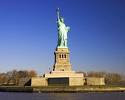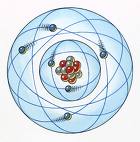 KNOW IT ALL
KNOW IT ALL“Only God is all knowing…..but man foolishly desires to compete” P.I.B.
Man is a curious creature, and perhaps our thirst for knowledge is what sets us apart from the other creatures on this earth. There has been a concerted quest to accumulate knowledge by rich and powerful men, since the beginning of recorded time. Archaeologists have uncovered thousands of papyrus scrolls and clay tablets with early writings. Rulers and wealthy individuals alike began accumulating great collections of written materials for both private and public use. In fact, it became a matter of pride as to how many scrolls a collection contained.
Several rulers set out to accumulate copies of “all the books, in the world” (they should have looked in my backpack during my high school years). Large sums of money were paid to authors of original works and the people who transcribed original works into copies. Individuals who copied original works were in high demand, it was exacting work and the quality and “trustworthiness” of the copy raised the value even more.( there was no Kinkos back then) In fact the Ptolemies had issued an edict that anyone entering the city with a book or scroll would have it confiscated or had to leave it with the scribes who made a copy of it.
Libraries have continued to grow and flourish over the centuries. The first public library in the country opened in Peterborough, New Hampshire, in 1833. Philanthropist Andrew Carnegie helped build more than 1,700 public libraries in the US between 1881 and 1919. So, libraries have had a valuable place in history, however the massive number of books and documents and associated cost,(especially trying to replicate this collection in thousands of facilities globally) has outpaced their ability to warehouse all the material at a single location. Digital storage is the more likely solution going forward.(and you don’t have to whisper in front of your computer)
However, never before in history has there been the means to both, gather, interpret and store this vast bank of wisdom. For knowledge to be of any value it must be accessible and easily retrievable. The mere possession, storage, or warehousing of data, does not impart knowledge.
Advances in computer science, have brought us to the threshold of amassing the greatest store of human knowledge ever known. Processing speed has increased geometrically amid great fanfare; however the real work horse for this type of task is data storage. Gigabytes, Terabytes, Petabytes, and even Zettabytes (lions and tigers and bears..oh no) of massive searchable storage. I underscore the importance of the word “searchable”.
Massive data storage without the ability to quickly catalogue or retrieve it is useless. The era of pigeonholing thousand of leather scrolls in wooden boxes and buckets is gone, as is the ability to store traditional books. Soon, all the information from all the books and greatest libraries in the world will be accumulated into one giant data base. The internet is another portal that will facilitate this gathering of worldly data. (what do you think a search engine does..hint..hint). Type in virtual any subject of interest and hit search. In most cases you will return millions of “hits”in less than a second, as the search engine communicates with computers and servers worldwide.
Seem far fetched ? Google, the giant search engine company is already, deep into this process. Check out their web site that catalogues books and written material at http://books.google.com/books , you will be amazed at the information and content they have already amassed. Just type in a book or magazine title and you will find either a synopsis or the work in its entirety. Want to read the entire bible..it’s on there. Type in “The Old Man and the Sea”..its on there. How about “Black Belt magazine October 1998 edition, you guessed, its there.( Excerpts from “The Poor Italian boys blog”..ok..so they haven’t got to me yet..I’m holding out for the big bucks) In any case, they paid a team to disassemble each book and magazine and scan them in to a computer. The rare old originals were destroyed in most cases.
Knowing Google, there is a bottom line reason for doing this. They are not expending huge amounts of capital and labor purely for the betterment of mankind; this is not a philanthropic gesture. Once complete this will be a powerful medium of exchange.
This emerging technology offers breathtaking possibilities for the advancement of knowledge and the human condition, but also raises perplexing questions. Can we reduce all of mans accumulated knowledge and wisdom to a single data base, and more importantly, who would have access to this database? If rare and original copies are destroyed, do we lose a connection with the past and the original authors? Is too much knowledge a dangerous thing…in the hands of too few ?
Knowledge is Power…..
Please feel free to contact me at: pooritalianboy@gmail.com
P.I.B.
.jpg)







No comments:
Post a Comment